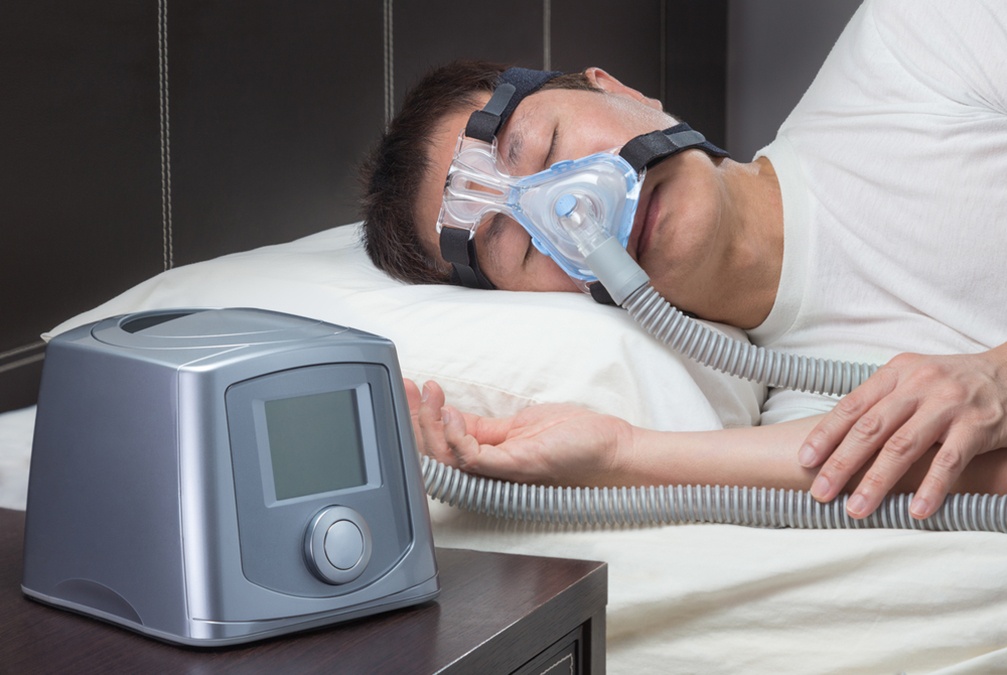 Sleep apnea causes numerous health issues. That’s well documented.
Sleep apnea causes numerous health issues. That’s well documented.
Snoring (without a sleep apnea diagnosis) has been proven to be less dangerous but can still cause many of the health issues that sleep apnea is responsible for – just on a milder level.
So anyone experiencing snoring or sleep apnea should take notice of a new study published in the Journal of the International Neuropsychology Society.
Because it reveals damage being caused to one organ that nobody wants to lose: The brain!
Australian researchers performed a study to investigate whether people with sleep apnea struggled to remember the details of autobiographical events.
They recruited 44 people with untreated sleep apnea and 44 people without any sleep breathing problems and asked them to recall specific events from their childhoods, their early adult lives, and their recent lives.
Interestingly, while only 18.9 percent of people without sleep apnea had any memory problems of their own lives, a whole 52.3 percent of people with this condition could not recall their lives in varying detail.
In addition, they also tested two other types of memory in their subjects.
1. Semantic memories from their own lives, such as the names of people and streets. Sleep apnea sufferers fared much poorer than good sleepers, confirmed the findings of previous studies.
2. Episodic memories from their own lives, such as their first and last days at school. Both groups were equally good.
They quoted previous studies that revealed a substantial loss of grey matter in the brain regions that worked with the autobiographic memory network for people suffering sleep apnea.
This is no surprise, as snoring and sleep apnea starve your brain of oxygen while sleeping. It’s therefore essential you heal your snoring (or sleep apnea) today.
But how?

 Overcoming IBD
Overcoming IBD Multiple Sclerosis
Multiple Sclerosis Banishing Bronchitis
Banishing Bronchitis Gum Disease Gone
Gum Disease Gone Overcoming Onychomycosis
Overcoming Onychomycosis Neuropathy No More
Neuropathy No More The Prostate Protocol
The Prostate Protocol Brain Booster
Brain Booster
 Ironbound
Ironbound
 Solution for Shingles
Solution for Shingles
 The Bone Density Solution
The Bone Density Solution
 The Ultimate Healing Protocol
The Ultimate Healing Protocol
 The Parkinson's Protocol
The Parkinson's Protocol
 The Chronic Kidney Disease Solution
The Chronic Kidney Disease Solution
 Overthrowing Anxiety
Overthrowing Anxiety The Fatty Liver Solution
The Fatty Liver Solution The Hypothyroidism Solution
The Hypothyroidism Solution
 The End of Gout
The End of Gout The Blood Pressure Program
The Blood Pressure Program
 The Oxigized Cholesterol Strategy
The Oxigized Cholesterol Strategy
 Stop Snoring And Sleep Apnea Program
Stop Snoring And Sleep Apnea Program
 The Arthritis Strategy
The Arthritis Strategy The Vertigo & Dizziness Program
The Vertigo & Dizziness Program The 3-Step Diabetes Strategy
The 3-Step Diabetes Strategy Hemorrhoids Healing Protocol
Hemorrhoids Healing Protocol The Erectile Dysfunction Master
The Erectile Dysfunction Master Weight Loss Breeze
Weight Loss Breeze The IBS Program
The IBS Program The Insomnia Program
The Insomnia Program The Migraine and Headache Program
The Migraine and Headache Program The Neck Pain Solution
The Neck Pain Solution The Menopause Solution
The Menopause Solution The Ejaculation Master
The Ejaculation Master The TMJ Solution
The TMJ Solution The Acid Reflux Solution
The Acid Reflux Solution The Fibromyalgia Solution
The Fibromyalgia Solution The Psoriasis Strategy
The Psoriasis Strategy